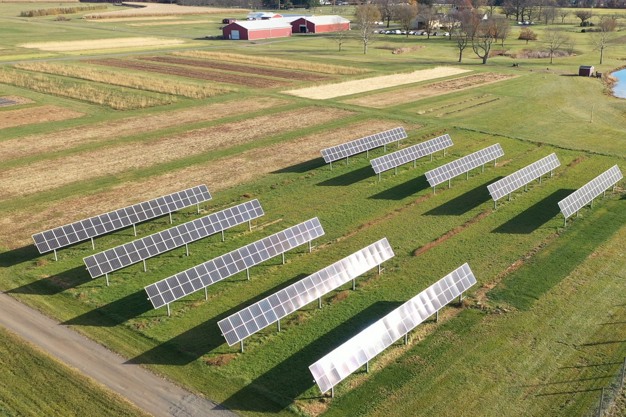SolarEdge Technologies has been selected by Rutgers, the State University of New Jersey, as part of a research and demonstration program to explore the potential of dual-use agrivoltaics (the combination of agricultural production and solar energy generation simultaneously on the same land) for farmers across the state.

Rutgers research will assist the Dual-Use Solar Energy Pilot Program that will be administered by the NJBPU. The pilot program is a three-year, 200 MW agrivoltaics initiative with the goal of exploring the feasibility and benefits of agrivoltaics. The pilot program is a collaborative effort including the NJBPU, the New Jersey Department of Agriculture, the State Agricultural Development Committee, the New Jersey Department of Environmental Protection, and the Rutgers Agrivoltaics Program. The results and data from the research program will be used to inform the establishment of a permanent Dual-Use Solar Program in New Jersey. The Rutgers Agrivoltaics Program includes three sites, each using a different panel mounting method to investigate the impact on agricultural production and electricity generation:
- Rutgers Animal Farm in New Brunswick has vertically mounted bifacial panels and will be used for the production of forage crops and beef cattle grazing (170 kWDC installed and grid-connected)
- Snyder Research and Extension Farm in Pittstown has single-axis trackers and will be used for hay production (94.5 kWDC installed and 82.4 kWDC grid-connected)
- Rutgers Agricultural Research and Extension Center in Bridgeton has single-axis trackers with both single-wide and double-wide rows of panels and will be used for the production of vegetable and staple crops (255 kWDC installed and 48.6 kWDC grid-connected)
At each site, the research will evaluate electricity output, using Module Level Power Electronics (MLPE) for the measurement and analysis of energy production.
"Agrivoltaics is a fast-growing and hugely exciting sector that provides a solution for many of the business challenges that farmers are facing today – from managing rising energy costs to moving to more sustainable production. However, we are still at the start of this journey. The aim of our research is to develop knowledge that will help to establish practices that can help improve both the sustainability and viability of farms through the safe and regulated adoption of solar energy. We are excited to be working with SolarEdge to achieve these goals," said Margaret Brennan-Tonetta, Director for Resource and Economic Development and Senior Associate Director of the New Jersey Agricultural Experiment Station.
Bertrand Vandewiele General Manager of SolarEdge in North America, said: "Agrivoltaics is a perfect example of a real 'win-win'. This practice allows for expanded solar development to address climate change, without the land-use challenges often associated with ground-mounted solar developments. It can also provide benefits for farmers, allowing a stable revenue stream and protection against climate hazards. In the U.S., there are more than 500 Agrivoltaics sites, producing a total of 9 GW of solar energy1. These numbers are likely to grow as interest in Agrivoltaics has been greatly expanding, as indicated by the increase in support and funding for this sector. For example, the U.S. Department of Agriculture's funding for Agrivoltaics more than tripled from 2021 to 20222.
Farmers are able to move to more sustainable and profitable production without substantially reducing space for growing crops – in fact agrivoltaics can potentially boost the production of certain shade-tolerant crops by providing protection from direct sunlight, while the cooler temperature below the panels reduces water evaporation. Meanwhile, the end consumer can feel good about choosing produce from sustainable farms. Through this collaboration with Rutgers University, we look forward to playing our part in helping to advance the adoption of more sustainable and profitable farming practices."
For more information:
SolarEdge
solaredge.com
